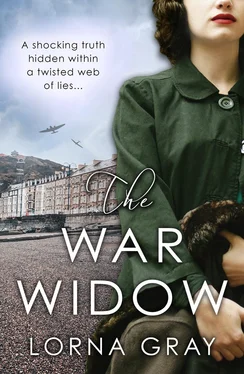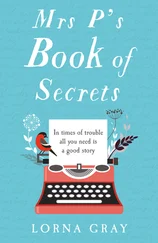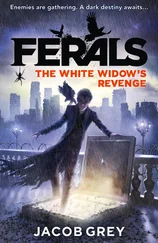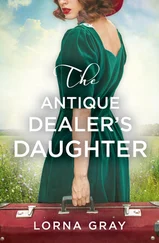She did it because she thought Adam might join in. Instead she had Jim’s account of nauseating plunges, relentlessly roaring water and crushing swoops onto the rocks. Now he was sharing the spectacle of the first viewpoint that looked out at the falls beneath the three bridges. Mrs Alderton was disappointed because while Adam clearly ranked as a desirable conversational partner, Jim Bristol, only a lowly civil servant and an infantryman before that, very definitely did not.
I distracted myself from it all by talking to the little boy who was kicking the leg of the chair beside me. He was tired and wishing he hadn’t been lured in here by the Miss Bartlemans since they were now being old and boring. His mother seemed to be desperately praying that no one would say anything about certain guests being better fitted for boarding houses before she managed to get him away to bed. They were the perfect distraction for me. I was just in the throes of discovering young Samuel was a fellow artist and quietly attempting to interest him, rather unsuccessfully I might add, in the gift of a few bits and pieces I kept at the back of my sketchbook when I noticed that Jim was watching me.
He watched me slip the sketchbook back into my bag and then he very deliberately turned back to Mary and began revisiting every dip, every plunge of the crashing waters in vivid, untamed detail. It made my head spin but not because of his passion for the waterfalls. It was because it felt horribly like Jim was punishing me for the lie over the sketchbook; the one where I’d told him that I didn’t have it with me today. It felt like he blamed me for leaving him on the train and that he must have enjoyed betraying this second lie to these two woman because he knew what they would do with it. It felt like he must know too what the endless revisits to the scene of that awful drop would mean to me so was describing them deliberately.
My distress came also from fearing that I was being unkind in my present judgements about him and he was as blameless here as the last man had been.
It was then that Adam abruptly decided to speak. He dropped his newspaper to say loudly, “Yes Mary, it was a long way to go by car.”
His interjection was rough. It burst onto the room like it was wrenched out of him against his better judgement as his resistance was finally eroded by their incessant probing on the subject of that fated decision to allow me along on his drive. The truth is it actually came when he might have just as easily remained silent. They weren’t talking about him any more. They had been distracted by a longer, more delightfully detailed account from Jim of the claustrophobic depths of the gorge and the weight of the falling water and the branches and debris being soundly shattered in the roaring maelstrom at the base.
Then Adam added this rather helplessly, “And indeed you were right about the other bit too.”
He meant the part about good company being a useful addition.
I knew I deserved it, but somehow I’d never have expected this man to be intentionally cruel.
I stayed just a few seconds more, long enough to hear the wireless silence everyone with a report on the Royal Wedding and to observe the solemn toast to the newlyweds as instigated by the Miss Bartlemans, and then I retreated to my room.
The only truly disconcerting element that followed me from the lounge was that the dignity of my quiet exit didn’t stop me from accidentally leaving my borrowed library book behind as I hurried away.
---
The loss of Jane Eyre was the real punishment for my mistakes that day. I felt it particularly at three o’clock in the morning when I gave up on sleep just as I had the night before and the night before that. It was proof of why I ought to have been grateful to Adam for his interjection. No one here can have known – with the exception perhaps of Jim Bristol – about Rhys’s fall from that bridge. They didn’t know that every fresh mention of those branches churning in the depths hurt my mind and flooded it with visions of my husband’s broken limbs doing precisely the same thing. They wouldn’t know that I would have traded almost anything not to be driven from the lounge to my room with that image in my head. It had been hard enough getting to sleep of late without the stresses of that place stalking me in my dreams.
As it was, I ended up climbing out of bed to wrap a housecoat over my unnecessarily elegant nightdress for a prowl about the darkened corridors back down to the lounge. The nightdress was an unhelpfully extravagant birthday present from my mother designed to reawaken my femininity after the divorce – thoughtful, generous and, in that way only mothers can achieve, it had the dispiriting effect of making me feel like I must routinely look like a shapeless sack where I had thought myself quietly sophisticated.
The lounge opened off the marble-clad entrance hall. It was an ornate box with no windows that was tucked in the space between the wide sweep of the staircase, the long range of the kitchens at the back and the dining room that overlooked the seafront. It had a deep carpet and heavy plasterwork framing the ceiling and a very grand arch that let patrons through to the dining room. The pictures on the wall harked back to the time when the educated classes were getting particularly excited about imaginary classical ruins. The furniture was equally antiquated and smelled faintly of stale potpourri. In the dim light cast from the reception desk everything was a grey shapeless clutter, which unfortunately didn’t include my book.
A burst of tired frustration hit me hard then. It served me right, I thought viciously, for presuming that the century since its publication would protect Jane Eyre from the same interest excited by the work of a Mr A. E. Woolfe. That book, I could see, was lying abandoned on a footstool where I suspected it would remain until the next time it was required for the ongoing campaign to impress the author. I was tempted to take it, but realised that as well as being tantamount to open warfare with Mary, the act would be bound to give the other guests the delight of deciding that I too was vying for his attention. So instead I took the well-thumbed remains of a newspaper and climbed the darkened stairs again.
It was when I put the key in the lock that I happened to notice Jane Eyre lying innocently outside my door. It was propped against the doorframe where some kind soul had placed it and I had simply missed it before.
At least that was what I realised about five ludicrous minutes later, once I’d finished worrying that someone was playing tricks on me and had scoured the shadowy doorways for their presence.
I read for a while, blinking through the eternal sparring of its heroine with her will, her hardship and indeed her master, wondering whether a book filled with heartache and loneliness was really the right kind of reading matter for someone on the brink. But then, lulled by its comfortingly familiar tones, I actually managed to doze a little and when I stepped out of my room for an early breakfast, I was surprisingly rested. It was a good job too because this morning promised to be just as difficult as the last; although at least it wasn’t expected to involve yet another cramped train ride.
“Good morning.”
Adam had stepped out of a room two removed from mine. He was dressed in the same style as the day before; a pair of tough-looking trousers that had probably been very expensive once and a warm jumper that on any other man might have been purposefully chosen to enhance the colour of his eyes. Clearly today was expected to involve more walking.
“Morning,” I returned formally and shrugged off the impulse that made me think to wait while he set his key to its lock.
But today it seemed he thought I should because I heard a short mention of my name as he stepped quickly down the carpeted corridor to join me and then a brief uneasy quirk at the corner of his mouth followed by: “I think you must have—”
Читать дальше












